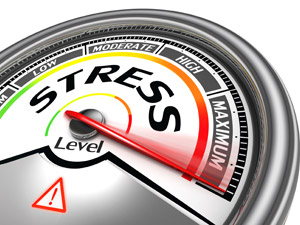DEHYDRATION is much more common in the summer, so it’s good to remember the importance of beating dehydration by drinking with good old fashioned WATER!! While most of us understand that dehydration can have medical complications, studies show that even mild dehydration can influence mood, energy levels and the ability to think clearly.
We often use thirst as an indicator for when we need to drink — a response that experts say is too late to avoid many of the detrimental effects of dehydration.
Researchers at the University of Connecticut’s Human Performance Laboratory discovered the mental, mood and cognitive downside of even mild dehydration. Investigators determined that it didn’t matter if a person had just walked for 40 minutes on a treadmill or was sitting at rest – the adverse effects from mild dehydration were the same.
Mild dehydration is defined as an approximately 1.5 per cent loss in normal water volume in the body.
Our brains are 80% water. When we fail to replace the fluids lost through sweat, our bodies borrow water from the cells in the brain for use in essential processes elsewhere. This causes the cells in the brain to wither and shrink.
As the brain shrinks it pulls away from the skull, putting stress on the area around it giving us a dehydration headache.
But just how much is does the brain shrink exactly?
A team of scientists in the UK found that 90 minutes of sweating without replenishing lost fluids shrinks the brain as much as a year of ageing, or causes withering equivalent to two and half months of Alzheimer’s disease. The same study revealed that dehydration not only affects the size of the brain, but how hard it works.
At just 1.1% body water weight loss (about 1.1% dehydration), researchers observed increased neural effort when performing common cognitive tasks, effecting short term memory, long term memory recall, arithmetic and general problem solving.
The message is that people need to stay hydrated at all times, not just during exercise, extreme heat or exertion.
“Our thirst sensation doesn’t really appear until we are 1 [percent] or 2 percent dehydrated. By then dehydration is already setting in and starting to impact how our mind and body perform,”
says Lawrence E. Armstrong, one of the study’s lead scientists and an international expert on hydration.
“Dehydration affects all people, and staying properly hydrated is just as important for those who work all day at a computer as it is for marathon runners, who can lose up to 8 percent of their body weight as water when they compete.”
Many people also turn to fizzy drinks and sports drinks to rehydrate. Watch out for the sugar content though! There’s so much hidden sugar in these drinks.
In order to stay properly hydrated, experts like Armstrong recommend that individuals drink eight, 8-ounce glasses of water a day, which is approximately equivalent to about 2 litres of water.







